Work with us
Roles at Wellington Free
{{articleInView.title}}
Join the team at Wellington Free Ambulance
When you join our team you will be part of the crew answering more than 179,000 111 calls for help and responding to around 54,000 emergencies every year.
You’ll work alongside passionate people dedicated to making a difference to people’s lives, every day. We have roles to suit all skills and experience. From Paramedics to Emergency Medical Call Takers, Patient Transfer Officers, Event Medics and Head Office staff.
If you'd like to register your interest in working for Wellington Free Ambulance, please fill out the form below and someone from our recruitment team will be in touch soon.
Interested in joining the team? Please register your interest
Paramedics
The field operation teams lead patient care in emergency medical and trauma situations, pre-hospital care, treat-at-home care and rescue and transport services.
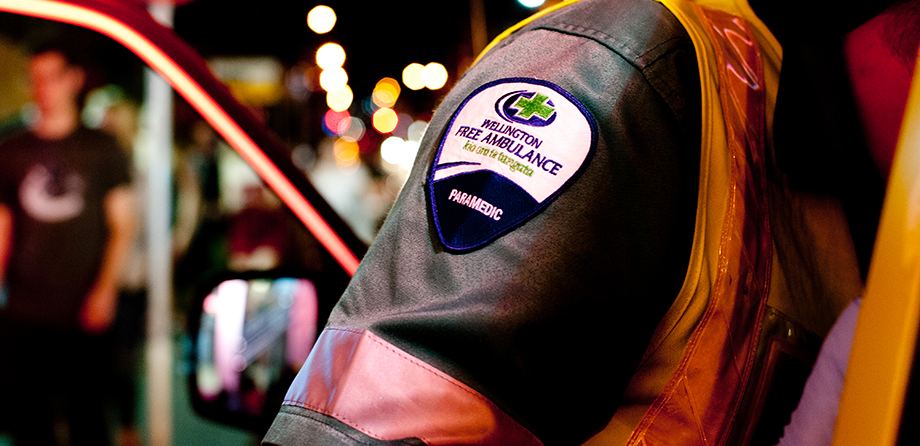
Our paramedic crews respond to emergencies 24 hours a day, 365 days a year. It’s their job to work quickly and help by providing world class, compassionate care to almost 54,000 people and their families every year.
Following completion of the Bachelor of Health Science (paramedic) Degree, successful graduates apply to join Wellington Free Ambulance’s graduate training programme, where they spend a year practicing their skills under the guidance of a trained mentor.
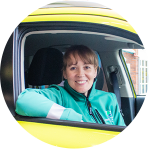
“I think like all paramedics, the biggest highlight is daily being able to make an overwhelming, painful and sudden adverse event in another person's life, manageable and better in some way. During my time at Wellington Free, it has been exciting to see opportunities and roles become more diverse, skills increase and equipment advance, and to see the passions, investment and expertise of the people driving these changes.”
Indira, Intensive Care Paramedic
Our Clinical Paramedic Advisors will do an assessment over the phone, talking through your injury or illness. They will discuss with you the best options for medical care, organising a doctor’s appointment or arranging an ambulance to come and see you at home.
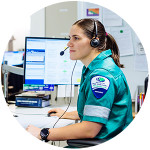
"If a job comes in where we can offer advice or alternative care options, we are able to call the patient back and do a more in-depth assessment over the phone and offer advice. Being able to help people over the phone before paramedics arrive, or being able to organise an alternative plan of treatment for the patient is great.”
Kristy, Clinical Paramedic Advisor
Communications Centre
The 111 Communications Centre in Thorndon is staffed by a team of emergency medical call takers, ambulance dispatchers, clinical paramedic advisors and nurses.
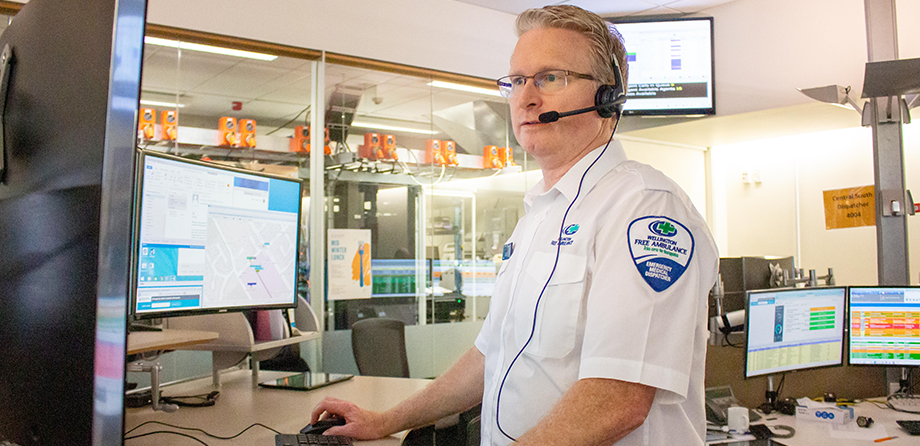
When someone calls 111, emergency medical call takers use an international triage system to determine the condition of the patient, and ambulance dispatchers organise the best sort of help. They are assisted by clinical paramedic advisors and registered nurses who provide help and advice over the phone.
Emergency medical call takers (EMCTs)
EMCTs are the first point of contact for the public. They are critical to providing lifesaving advice to 111 callers. EMCTs talk to people in crisis situations every day. It’s an extremely challenging but rewarding role.
On completion of training emergency medical call takers receive an International Diploma in Emergency Medical Dispatch.
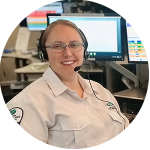 "As Emergency Medical Call Takers, we are trained to gather information about each individual situation to arrange the most appropriate help. We will continue to do so to the best of our ability for as long as it takes."
"As Emergency Medical Call Takers, we are trained to gather information about each individual situation to arrange the most appropriate help. We will continue to do so to the best of our ability for as long as it takes."
Heidi, Emergency Medical Call Taker
Emergency medical dispatchers (EMDs)
EMDs ensure that the appropriate resources are dispatched to both emergency and non-urgent incidents. They juggle multiple resources using multiple communications methods. It is a technical role managing high volumes of incidents in often stressful situations.
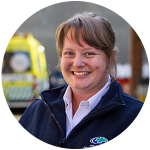
“My job is to make sure that the right resources are dispatched to the right place at the right time, which can be like trying to solve a puzzle that is always changing. It is fast paced and I enjoy that every day is different and presents new challenges. I love knowing that by doing my job well I can make a real difference to my community when it matters."
Alex, Emergency Medical Dispatcher
Patient Transfer Officers
Patient transfer officers transport people between specialist medical appointments such as dialysis treatments.
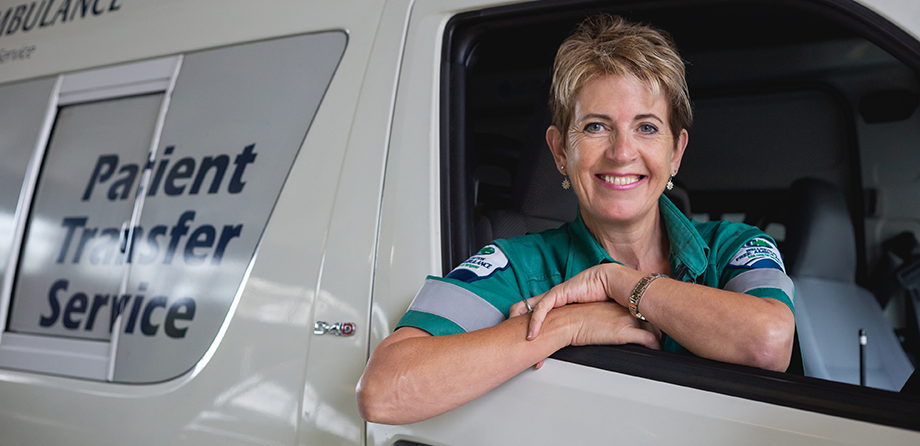
Our Patient Transfer Service operates 18 hours a day, 7 days a week ensuring patients get to their appointments and any follow up medical care safe and well. Much of the role is about relationship building, providing empathy and a listening ear.
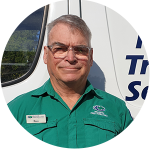 “You never get two days the same, the workload will be different and the people you meet all come from different walks of life with different requirements. My own medical history helps me relate to all kinds of people, which can provide a different focus to their own situation.”
“You never get two days the same, the workload will be different and the people you meet all come from different walks of life with different requirements. My own medical history helps me relate to all kinds of people, which can provide a different focus to their own situation.”
Ross, Patient Transfer Officer
Event medics
Event medics are a generous and committed team providing medical cover at sporting events, community fairs and live concerts all across the region.
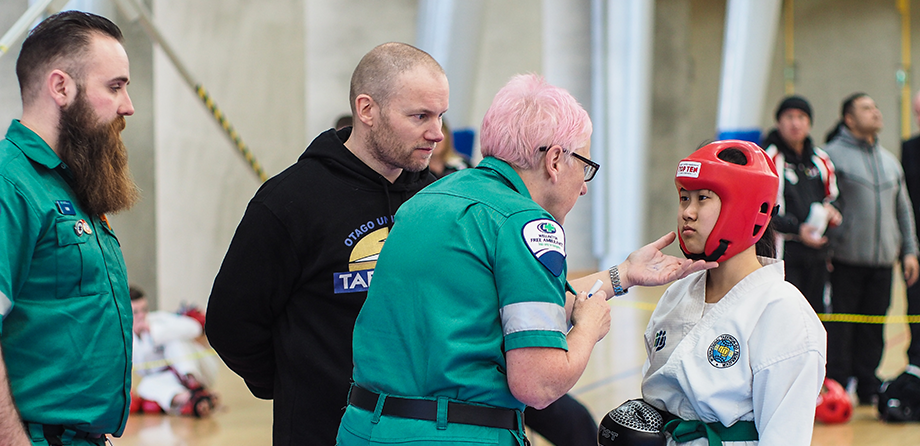
Our medics attend hundreds of events every year, as well as training the community in CPR as part of The Lloyd Morrison Foundation Heartbeat programme. They receive ongoing training and support and can be involved as often as their time allows. Joining the event medic team is a great way to contribute to the community while learning new skills for those who don’t come from a medical background.
"It’s inspiring! Meeting new people, gaining new skills, getting out there and doing something for others is what’s important and I feel extremely privileged to be included in this team “
Jackie, Event Medic
Support roles
While the majority of our staff help the public every day, there is a crew of people in the background helping and supporting them.
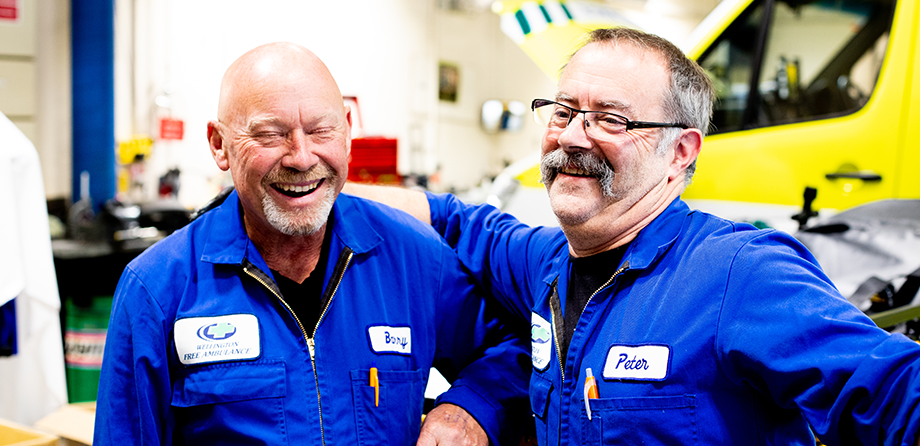
Our head office team is involved with sourcing funding for new equipment, keeping our IT systems running, arranging the rosters and paying our staff among other things.
Whether your specialty is medicine, administration, human resources, finance, communications and marketing, fundraising or information technology, we have a range of roles that might be just what you are looking for. As part of a passionate and innovative organisation you provide support and advancements to the frontline crew in delivering a world class people focused service.
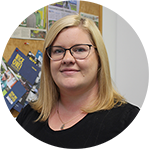
“We need to raise around $7 million a year to continue to provide a great service to our community, so it’s always busy in the Fundraising Team! We come to work with a great sense of purpose every day, which I love. It’s a great feeling when you see new ambulances and new pieces of equipment arrive thanks to the generosity of our supporters.”
Sam, Individual Giving & Database Specialist